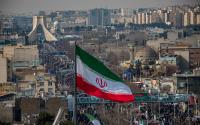19 October 2010http://www.monbiot.com/archives/2010/10/18/a-planet-in-square-brackets/
As the summit begins, I’ve finally got round to reading the draft declaration on biodiversity* the governments meeting at Nagoya in Japan will discuss. It’s 195 pages long. If it were a thesis about the causes and consequences of the decline of the world’s wild species, I would give it a fairly high mark. As an action plan for doing something about this decline, it’s a dead loss.
It begins by reminding us of the comprehensive failure of the last big declaration, in 2002. Then the governments agreed to “achieve by 2010 a significant reduction of the current rate of biodiversity loss”. The new declaration begins by saying this hasn’t been met “in full”. Later, it concedes that it hasn’t been met at all:
“The diversity of genes, species and ecosystems continues to decline, as the pressures on biodiversity remain constant or increase in intensity mainly as a result of human actions.”
It warns that, unless something changes pretty drastically, there will be “continuing high levels of extinctions and loss of natural and semi-natural habitats throughout this century”. There’s a danger, it says, that certain critical thresholds could be crossed, leading to the collapse of ecosystems, with serious consequences for the human communities that depend on them.
“While the harshest impacts will fall on the poor, thereby undermining efforts to achieve the Millennium Development Goals, no-one will be immune from the impacts of the loss of biodiversity.”
It blames the absence of progress on a lack of money and a lack of expertise on the part of many governments. But while these doubtless contribute, the truth is that these are secondary issues: the primary one is a lack of political will. Wildlife and ecosystems suffer from the same problems as all other environmental issues: their decline takes place on a timescale longer than the political cycle; while there is a collective interest in protecting them, there’s often an individual interest in destroying them; and, unlike special interest groups, they don’t lobby, bribe and threaten politicians.
The declaration also suggests a fairly reasonable list of what should, in principle, be done to defend biodiversity. It proposes 20 targets, which include recognising the value of biodiversity in national planning, getting rid of incentives to destroy it, switching to sustainable farming and forestry, protecting coral reefs from climate change, creating more protected areas, giving special help to threatened species and eradicating invasive species. There’s only one problem: the governments agreeing to these measures don’t actually have to do anything.
All these targets, virtuous as they are, are merely “aspirations for achievement at the global level” and a “flexible framework” within which countries decide what they want to do. The governments signing up to them are “invited” to set their own targets, and only for those measures they deign to adopt. There are no sanctions and no specific measures to which particular governments must agree.
Any text which might imply acting on these proposals, even voluntarily, is in square brackets – meaning that it has been contested and might not be adopted. This includes the following, at the beginning of the list of targets:
“Take effective and urgent action towards halting the loss of biodiversity”
The same applies to most dates and all numbers and percentages: if these are not adopted, it’ll be nigh-on useless even as a voluntary agreement.
There won’t be a big fight at Nagoya because there’s nothing to fight over: governments can adopt these non-targets without incurring any cost to themselves, political or economic.
Having read this draft, it’s obvious to me that our Biodiversity100 campaign, which presses governments to declare at Nagoya that they will adopt specific targets of their own, is more necessary than ever. It’s also clear to me that the campaign can’t stop there: we’ll need to keep adding targets to the list, and keep demanding that governments sign up to them, long after the summit ends. Otherwise, in 2020, we’ll end up with exactly the same situation as in 2010: an admission that nothing has improved, a general wringing of hands and a commitment to adopt another meaningless set of non-specific targets. The vague commitments in the draft declaration will at least give us some leverage to say: here’s what you governments have agreed to do in principle. Now here’s what you must do in practice.
To his credit, Ahmed Djoghlaf has set aside some time for a Biodiversity100 event at the summit.
Here’s what he said about our campaign:
“I am the one indebted to you for giving us the opportunity to highlight the challenges and engage your readers. Thank for your
unique contribution with the Guardian 100 biodiversity. Great idea and great initiative.”
It takes a big man to respond so constructively to the stiff criticism we’ve made of the process he oversees.
The Guardian’s Asia correspondent Jonathan Watts will be presenting the campaign to the governments in Nagoya. Let’s hope some of them bite. In the meantime, please keep sending in your proposals for actions governments should be taking, and keep lobbying your government to adopt the targets we’ve already chosen.






